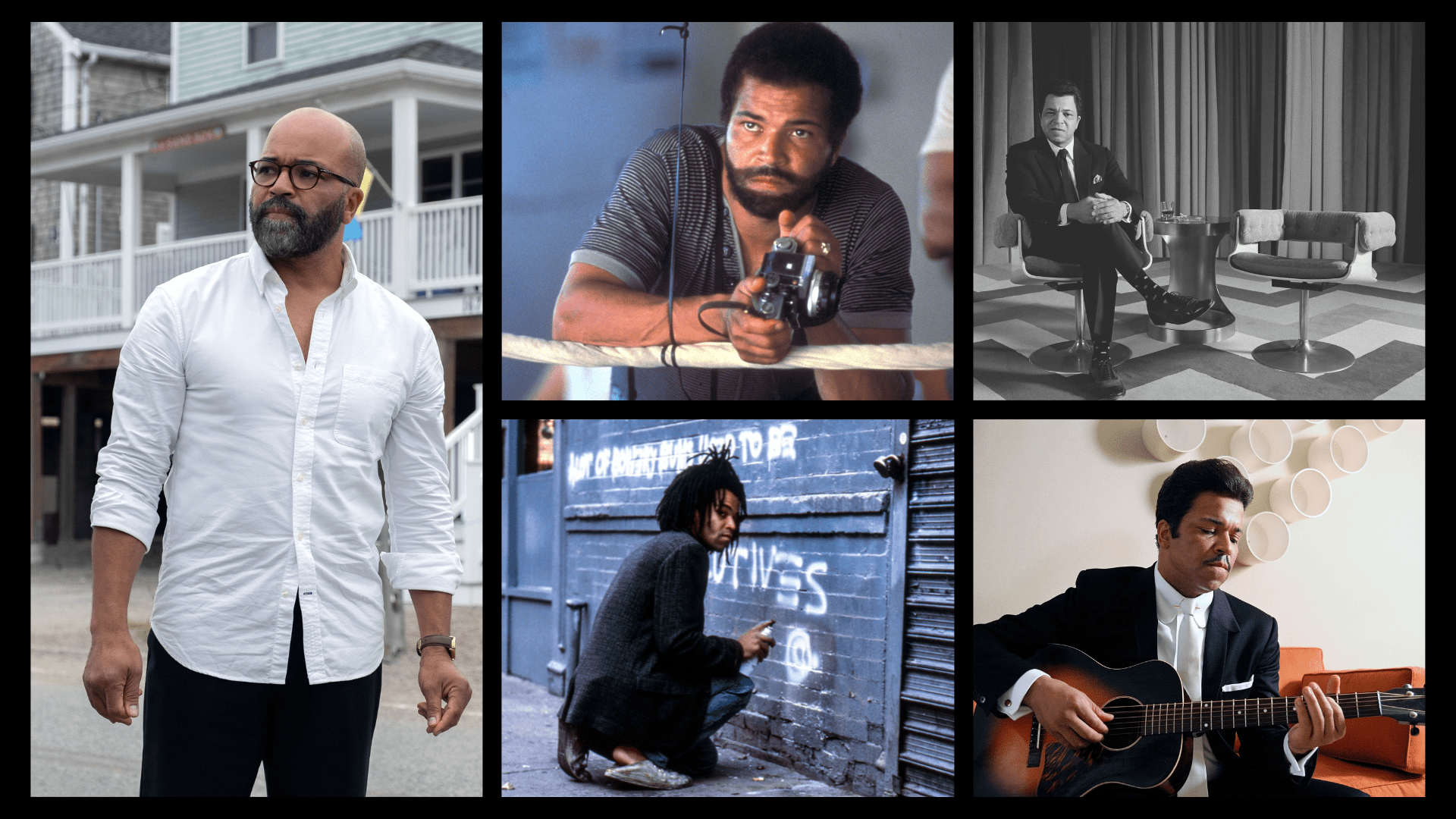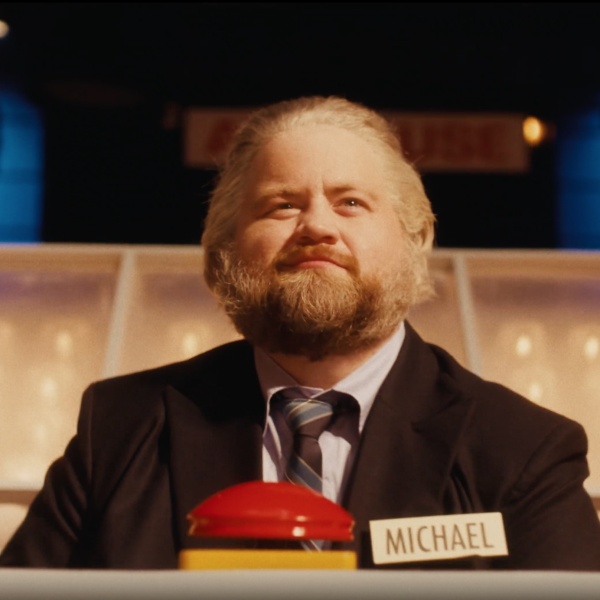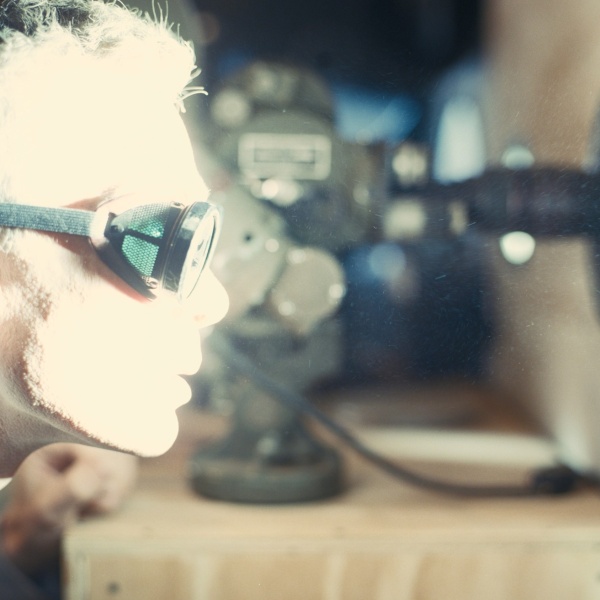Jeffrey Wright is one step closer to that EGOT. In January, the D.C. born actor received his first career Oscar nomination for his leading role in the satirical comedy “American Fiction,” an industry recognition that was overdue after years of incredible Wright performances. Should he win come ceremony day, he’ll need a single Grammy to become one of the few elusive talents to complete showbiz’s preeminent grand slam.
Starting his career in theater, Wright earned both his Tony and Emmy awards with the same role: Belize, a nurse and former drag queen in Tony Kushner’s acclaimed two-part epic play “Angels in America.” Wright earned raves for his charisma onstage, and walked away with a Supporting Actor Tony at the 1994 ceremony when he was just 28. In 2003, Wright was the only actor from the play’s original Broadway cast to reprise his role in the HBO limited series adaptation. He received equal acclaim for his reprised work, and beat out three of his costars to win Best Supporting Actor in a Miniseries at the Emmys.
Wright’s dual wins for the same part reflects the consistent, reliable quality of his performances. A veteran actor, he’s always a wonderful presence in whatever project he appears in, portraying diverse people with specificity and nuance. That said, he tends to bring that talent to supporting characters — with the exception of great lead showcases in “Basquiat” and “Ride With the Devil” — as a part of large, impressive ensembles, such as his great work in Wes Anderson films like “The French Dispatch” and “Asteroid City.” He’s become a familiar face in franchise fare like “The Hunger Games” or “James Bond” series, but always in roles that don’t leave a ton of room to showcase his skills.
As Wright has matured and transitioned into elder-statesman types, he’s found juicier roles to go along with them. He received acclaim and Emmy nominations three seasons in a row for his performance on the HBO reboot of “Westworld,” where he played an artificial intelligence programmer… sort of. And in “American Fiction,” Wright found one of the most plum star vehicles of his career: a two-hour comedy that casts him as a cynical academic, whose book parodies the way Black art is treated by white literary executives and becomes an unexpected monster hit. His weary, pitch-perfect comedic performance demonstrates all of the talents Wright brings to the table, and affirms the star-quality that’s been evident in his film and TV work from the very beginning.
In celebration of Wright’s first Oscar nomination, IndieWire decided to look back at the great actor’s prior performances to determine what stands out as the best of the best. This list includes both Wright’s film work and television roles; it does not include his work in theater. Entries are ranked based on the quality of Wright’s performance, rather than on the overall strength of the film or TV show itself. With that said, read on for Jeffrey Wright’s ten best performances, ranked.
-
10. “Shaft” (2000)

Image Credit: ©Paramount/Courtesy Everett Collection Who Wright plays: Peoples Hernandez, a Dominican drug lord. In the 2000 reboot of “Shaft,” Peoples is the menacing number two to the lead villain, Christian Bale’s rich white supremacist Walter Wade.
Why he’s great: Wright doesn’t play a lot of villains; he has a sensitivity and warmth that lends itself well to more empathetic parts. Still, it’s a blast watching him let loose as the intense Peoples, stealing the show with his loose cannon fire as he goes against Samuel L. Jackson’s hero. In a somewhat shaky remake of the blaxploitation classic, Wright is a clear highlight.
-
9. “Ali” (2001)

Image Credit: ©Columbia Pictures/Courtesy Everett Collection Who Wright plays: Howard Bingham, a professional photographer who is best known for his work as the biographer of Muhammad Ali. The 2001 biopic “Ali” starring Will Smith as the iconic boxer features Bingham along with many other historical figures Ali crossed paths with throughout his career.
Why he’s great: Michael Mann’s biopic adaptation of Ali’s life is swarming with A-list actors and stars, but Wright stands out in his small supporting role. He’s warm and likable as Ali’s confidante and provides a great grounding presence for the supersized film as its lead goes through tumutlous times.
-
8. “Broken Flowers” (2005)

Image Credit: ©Focus Films/Courtesy Everett Collection Who Wright plays: Winston, a busybody and mystery novel enthusiast. In Jim Jarmusch’s film, Winston encourages his neighbor, the aging Don Johnson (Bill Murray) to track down the sender of an anonymous letter claiming he has a son.
Why he’s great: Although Wright mainly appears in dramas, one of his strengths as an actor is that he can be really, really funny. He’s particularly amusing in “Broken Flowers,” playing Winston as a somewhat hapless optimist that contrasts hilariously and beautifully with Bill Murray’s depressive, aging sad sack. In theory, Winston could be a side character — but Wright makes him feel absolutely central.
-
7. “Cadillac Records” (2008)

Image Credit: ©Sony Pictures/Courtesy Everett Collection Who Wright plays: Muddy Waters, one of the most influential and acclaimed Blues musicians of all time. “Cadillac Records” features Muddy Waters as one of the more prominent musicians employed by its central figure, Chess Records founder and executive Leonard Chase (Adrian Brody).
Why he’s great: Although “Cadillac Records” is decidedly just OK, Wright is fantastic as Muddy. He enables the contradictions of the character as written in the film beautifully; Muddy is a consummate professional and a genius musician with a massive ego and a hedonistic approach to life. Wright makes all the disparate sides of Muddy feel synchronized, and digs into the anxieties and complications of his relationship with the white-owned company that makes him a star. His renditions of Muddy’s songs are admittedly more functional than show-stopping, but otherwise, he carries the film as its MVP.
-
6. “Ride With the Devil” (1999)

Image Credit: ©USA Films/Courtesy Everett Collection Who Wright plays: Daniel Holt, a free Black man and a member of the First Mississippi Irregulars, a guerilla unit loyal to the Confederacy during the Civil War. Holt fights for the unit out of loyalty to his friend George Clyde (Simon Baker), who bought him his freedom, but yearns to reunite with his mother after she was sold to a slaver in Texas.
Why he’s great: The beauty of Ang Lee’s complicated film about morality during war is how Holt slowly grows from a marginal presence to the heart of the film. And Wright is astonishing in the role, perfectly demonstrating Holt’s turmoil as a man fighting for a cause that harms him, while slowly defrosting from his quiet initial presence into a warmer figure. A scene where he explains how he only feels free when his friend is gone is one of the film’s most poignant moments, and Wright’s performance gives it the added weight it deserves.
-
5. “Westworld” (2016-2022)

Image Credit: John P. Johnson / HBO Who Wright plays: Bernard, a programmer at Westworld, a futuristic theme park in which humans mingle and interact with lifelike androids known as hosts. Socially awkward but kind, Bernard is one of the few Westworld employees with any sense of care towards its creations.
Why he’s great: “Westworld” went through many twists and turns throughout its four seasons on air, and its overall quality twisted and turned just as much as the plot. But in an uneven show, Wright played one of the show’s most consistent character, a force for good hoping to make this complicated and morally ambiguous world a better place. That could make Bernard boring compared to the more dynamic characters, but Wright’s commanding presence and gravitas makes him a great hero to root for, a truly human force in a gold metallic sci-fi adventure — with a secret that’s still better left unspoiled.
-
4. “American Fiction” (2023)

Image Credit: ©MGM/Courtesy Everett Collection Who Wright plays: Thelonious “Monk” Ellison, a sharp, opinionated, slightly close-minded academic and author. Frustrated with both his difficult family life and career setbacks, Monk writes a parody book lampooning the restricting and offensive stories “Black literature” is siloed into telling, and is forced to carry out a charade pretending to be an escaped convict when the book unexpectedly becomes a massive hit in the publishing industry.
Why he’s great: Monk is the kind of rich, layered lead character that Wright has deserved for so much of his career, and even though the character has existed since the 2001 book “Erasure” (which the film is based on), in practice it feels tailor-made for him. Wright is remarkably settled in the role, finding and teasing out layered idiosyncrasies about this flawed man that make him lovable but exasperating. His comedic timing is particularly on point; Wright is able to do a ton with just the raise of his brow or a single eye-roll. In an Oscars economy where comedic performances aren’t always recognized, Wright’s work is a welcome exception.
-
3. “Angels In America” (2003)

Image Credit: HBO/Photofest Who Wright plays: Belize, a kind but tough gay man and drag queen who works as a nurse assisting HIV patients in 1980s New York City. In both the play and limited series versions of Tony Kushner’s work, Belize is forced to care for the homophobic and cruel Roy Cohn (Al Pacino) as he dies of AIDS, despite their mutual hatred for one another.
Why he’s great: Winning a Tony and an Emmy for the same role is a huge accomplishment, and you’ll understand why when you see Wright in the role. As Belize, he’s total dynamite, hilariously funny, and remarkably real as a flamboyant gay man without ever making his queen the butt of the joke. His work with Pacino is particularly remarkable; the two develop memorably nasty chemistry together that feels like it will snap at any moment, even as Wright further teases out Belize’s softer side and conveys pity for the loathsome patient.
-
2. “The French Dispatch” (2021)

Image Credit: ©Searchlight Pictures/Courtesy Everett Collection Who Wright plays: Roebuck Wright, a reporter for the magazine The French Dispatch, who is loosely based on both James Baldwin and A.J. Liebling. Wes Anderson’s ensemble film focuses on three stories produced for the farewell issue of the magazine following the death of its editor; Roebuck is the reporter for the final story, about a botched kidnapping attempt of the Paris Police Commissioner’s son.
Why he’s great: Wright is only a small part of a big ensemble as Roebuck, but he’s the best part of the entire film. He fits in perfectly with Anderson’s specific style, giving the poetic narration of his segment rich voice and sumptuous delivery. He shines particularly bright during a flashback to Roebuck’s recruitment to the titular magazine, when the editor offered him a job after bailing him out of jail for being at a gay bar during a police raid. In a few short moments, Wright conveys such subtle but potent anguish that it pierces through the film’s candy-colored quirky fantasy and exposes the central sadness that’s been lingering there all along.
-
1. “Basquiat” (1996)

Image Credit: ph: Eric Liebowitz Who Wright plays: Jean-Michel Basquiat, the influential postmodern expressionist artist most famous during his work in the ’80s. Julian Schnabel’s film is a lightly fictionalized retelling of Basquiat’s life and work, leading to his death from an overdose at the age of 27.
Why he’s great: “Basquiat” flew under the radar when it was released in 1995, and remains a bit of an underrated gem today. But as the spontaneous, brilliant, and troubled central figure, Wright has never been more compelling. He gives Basquiat a dreamy, elusive, and eccentric presence that’s captivating to watch, embodying everything that made the artist brilliant during his too-short life. His magnetism and charm power the film almost single-handedly as it floats through the ’80s art scene in a stylized haze. It’s unshowy but brilliant work that demonstrates exactly what Wright is capable of as an actor.



